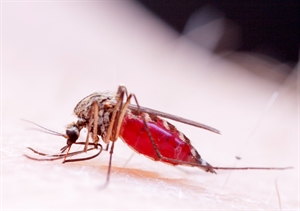Japanese encephalitis is the result of infection by a virus that is carried by mosquitoes. Most cases are mild, but the flu-like symptoms of Japanese encephalitis could spoil your trip or slow you down for a few days, and it has the potential to be more serious, too. One in 250 cases of infection by the virus lead to swelling of the brain (encephalitis). This can leave victims with lasting neurological damage, and 20–30% of patients who progress to encephalitis will die.
Where is JE a risk?
If you are travelling in Southeast Asia or to certain parts of the western Pacific and you will be staying in a rural area – particularly near rice paddies – you are at risk of exposure to JE. The risk increases during the rainy season. If your travel plans include camping, hiking, cycling or fieldwork, then you are also at risk.
The best way to protect yourself against Japanese encephalitis
Travel health experts recommend taking a two-pronged approach to preventing Japanese encephalitis. The first step you should take is to get vaccinated against JE. This needs to be done well before you travel – for maximum effectiveness the JE vaccine, known as Ixiaro, should be given in two doses four weeks apart, and the last dose should be given at least a week before you are exposed to Japanese encephalitis. You should, therefore, make your travel health appointment well before you travel.
If you need further information about the JE shot, Canadian Travel Clinic’s Japanese encephalitis vaccine page can tell you more.
The second step in your JE prevention plan is to avoid getting bitten by the vector. The JE shot is not, unfortunately 100% effective, and this means that you also need to practise mosquito avoidance during your stay. The mosquitoes which carry JE are active at dusk. You can protect yourself from mosquito bites by:
- applying insect repellents containing 50% DEET to your skin
- covering up with trousers, a long-sleeved top and socks
- sleeping in an air-conditioned room, or ensuring your accommodation is screened. Failing that, sleep under a bed net and treat your room with insecticide
Discover more about avoiding mosquito bites in our travel advice articles.
Last-minute vaccines for Japanese encephalitis
An accelerated schedule for Japanese encephalitis vaccination is available if you are travelling on short notice. Call our travel clinic in Calgary on +1 888 672 0005 if you think you need last-minute travel shots and we will do our best to help.
I’m looking for a travel clinic in Calgary
Look no further than Canadian Travel Clinics if you need travel vaccinations in Calgary. We can offer evening and early morning appointments for your convenience. Book online now.
Information about Japanese encephalitis
Note that any flu-like symptoms that arise during or after your visit to a region where JE occurs should be treated with caution. See a healthcare professional and tell them about your travel history, as this will help you get a swift diagnosis.
You can learn more about preventing Japanese encephalitis from The Government of Canada.

